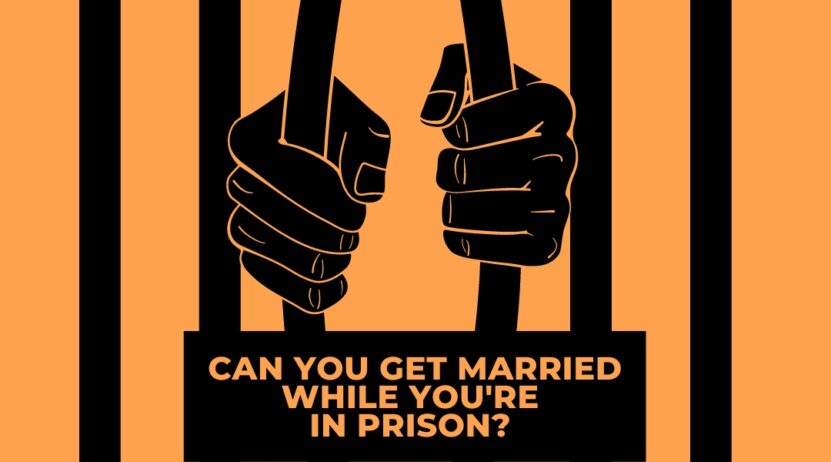In the confines of steel bars, cement walls, and a stringent routine, is it possible to find, foster, and formalize love? One question that we are often intrigued by is: Can individuals serving a sentence in prison get married? In this blog post, we delve into the laws, processes, challenges, and emotional aspects surrounding the intriguing concept of prison marriages.
The Legal Framework
First, let’s address the elephant in the room. Is it legally possible to marry while in prison in the United States? The answer is a resounding yes. In the landmark case of Turner v. Safley in 1987, the U.S. Supreme Court ruled that prisoners have a constitutional right to marry under the Fourteenth Amendment. However, prison authorities may regulate these marriages as long as the regulations are “reasonably related to legitimate penological interests.”
The Mechanics of Prison Marriages
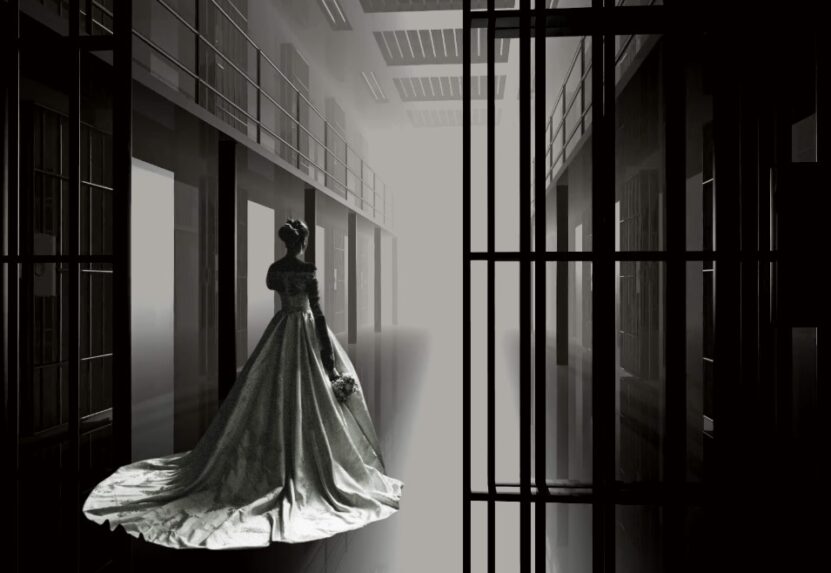
Arranging a prison wedding isn’t as straightforward as civilian nuptials. Each state, and often each prison, has its own set of rules. Generally, the process begins with the incarcerated individual requesting permission to marry from the prison administration. The administration checks if there are any legal or administrative impediments to the marriage.
Once the prison gives the green light, the couple must secure a marriage license from the local county clerk. This part can be challenging since many states require both parties to be present. However, some states offer a solution in the form of a proxy marriage, where a stand-in can sign on behalf of the incarcerated individual.
The ceremony itself is another hurdle. It often takes place in the prison, with a chaplain or a justice of the peace officiating. The couple can usually invite a limited number of guests. However, the rituals and celebrations are significantly pared down compared to traditional weddings.
Challenges and Roadblocks
While the law allows for prison marriages, the road to saying “I do” is fraught with challenges. These challenges range from the logistical, such as the difficulty of obtaining a marriage license or arranging a ceremony, to the emotional, like the strain of a relationship primarily conducted through letters, phone calls, and limited visitation.
Then there’s the concern about the motivations behind prison marriages. Sometimes, these marriages are attempts to gain certain legal advantages, like the right to private visits, known as “conjugal visits,” or the protection from testifying against a spouse in court.
The Emotional Landscape
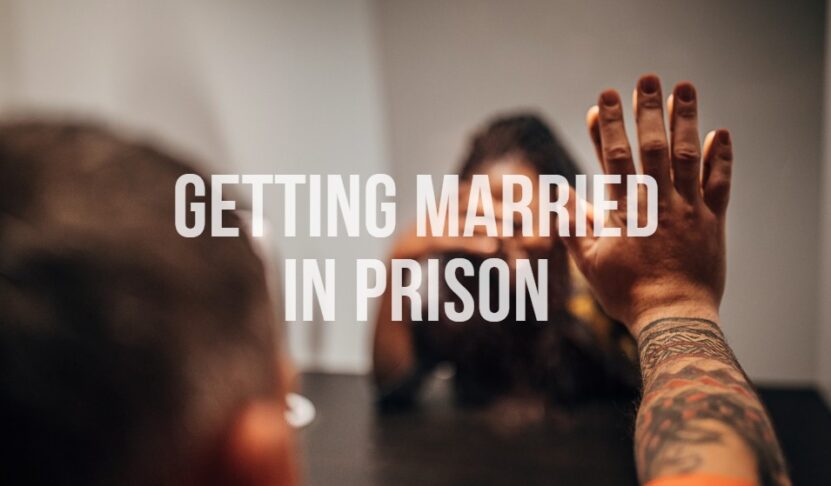
On the emotional front, prison marriages can be a testament to the strength and resilience of love, but they can also be incredibly demanding. Maintaining a relationship with limited physical contact, navigating the stigma associated with being the spouse of a prisoner, and dealing with the uncertainty of the future can put immense strain on the relationship.
However, for many, the emotional connection and commitment are worth the struggle. Despite the odds, they find a way to nurture their relationship and keep the flame of love alive.
The Therapeutic Angle
From a therapeutic standpoint, prison marriages can play a significant role in the rehabilitation of inmates. Studies have shown that prisoners who maintain strong family ties have lower recidivism rates. A loving and supportive relationship can offer emotional stability and motivation to better oneself, which can significantly aid in a prisoner’s reintegration into society.
The Societal Perspective
From a societal standpoint, prison marriages can evoke mixed reactions. On the one hand, they symbolize the triumph of love and commitment over adversity, highlighting the redeeming power of human connection. On the other hand, they challenge societal norms and expectations about marriage, opening up conversations around love, commitment, punishment, and redemption.
Stigma often surrounds the partners on the outside, who may face judgment or ostracization due to their choice of spouse. However, these individuals often view their relationship as any other, fraught with challenges but also full of love, connection, and shared dreams.
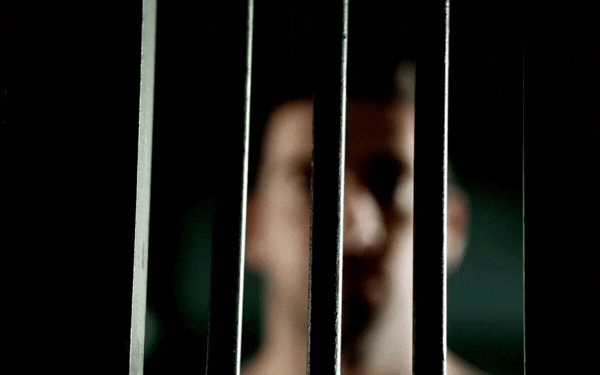
The Future of Prison Marriages
Looking forward, there’s an ongoing debate about how prison marriages could be better supported and regulated. Some argue for relaxed regulations to facilitate the marriage process and support the relationship, while others caution against the potential misuse of these relaxed rules.
One area of potential improvement is in providing support for the non-incarcerated spouse. This could include counseling services to help navigate the emotional challenges or resources to manage the logistical hurdles of a prison marriage.
Personal Stories
To bring a human element into this complex issue, let’s consider the story of Sarah and John (names changed for privacy). Sarah met John while he was serving a sentence for a non-violent offense. Despite the unconventional circumstances, they fell in love. The road to marriage was challenging, involving piles of paperwork, endless waiting, and a pared-down ceremony within the prison walls. Yet, they were committed to making it work.
Sarah shares, “It’s not easy. It’s not the fairy-tale wedding you dream of as a girl. But at the end of the day, it’s not about where you get married, but who you’re marrying. And I wouldn’t change that for anything.”
Legal and Social Implications
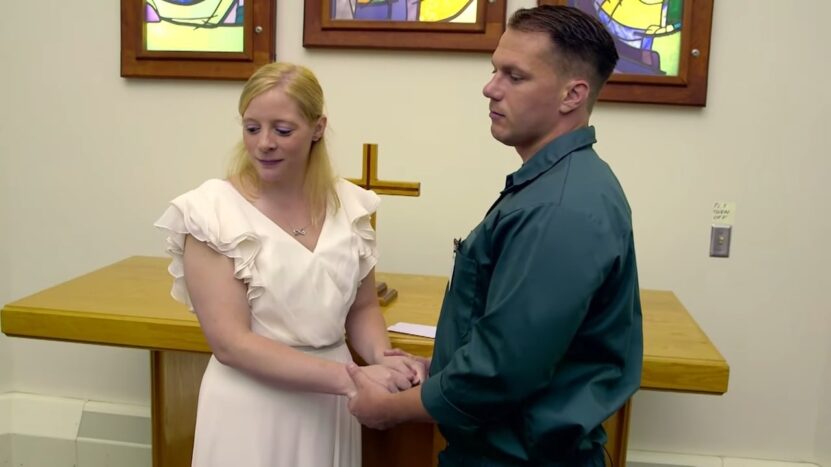
A more in-depth look at prison marriages reveals a web of legal and social implications.
The right to marry, even while in prison, is enshrined in the Constitution. However, it’s essential to note that while the Turner v. Safley case allows for the right to marry, it does not guarantee the right to consummate the marriage. Conjugal visits, which are private visits where physical intimacy is allowed, are not a constitutional right and are only offered in a limited number of states. This often raises ethical and human rights questions about the nature of these marriages and the extent of prisoners’ rights.
In addition to the legal intricacies, there’s also the societal impact of these marriages. These unions challenge societal norms and expectations, opening a dialogue about punishment, redemption, and the power of human connection.
Counseling and Support for Prison Marriages
Navigating the intricacies of a prison marriage often requires a support network. Several organizations offer counseling and support services for those involved in a prison marriage. These services can provide emotional support, help with logistical hurdles, and advice on maintaining a healthy relationship despite the challenges.
One such organization is Prison Fellowship, a nationwide network providing emotional and spiritual support for prisoners and their families. They offer resources for those considering a prison marriage, like marriage classes and counseling, to prepare them for the unique challenges they might face.
Children and Prison Marriages
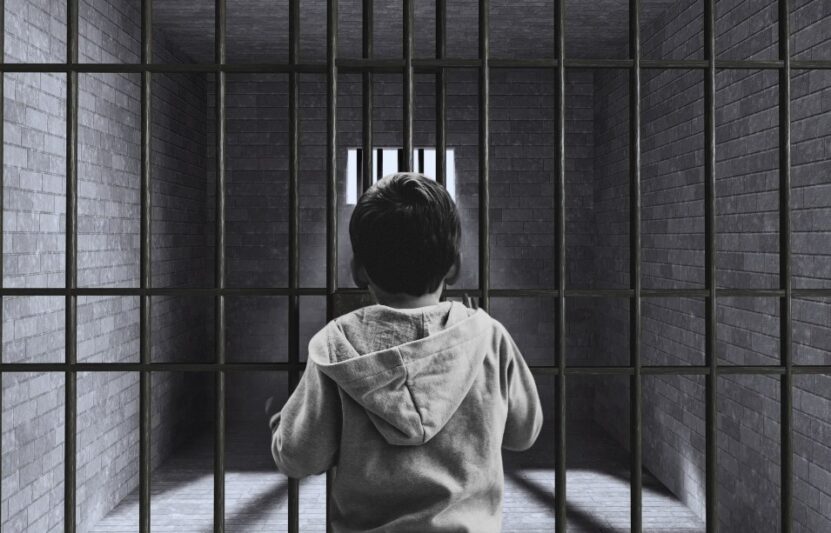
Another critical aspect of prison marriages is their impact on children. When one parent is incarcerated, the children face a unique set of challenges. They may struggle with the stigma associated with having a parent in prison, experience emotional turmoil, and face logistical difficulties in maintaining a relationship with their incarcerated parent.
In cases where a prison marriage leads to children, the non-incarcerated spouse often bears the brunt of parenting responsibilities. The incarcerated parent might also face challenges in establishing and maintaining a meaningful relationship with their children due to the limitations of the prison environment.
Despite these challenges, many families find ways to foster strong relationships. Regular visitation, letter writing, and phone calls can help maintain the parent-child bond. Some prisons also offer programs to support parenting from prison, providing resources and support to help incarcerated parents maintain a meaningful role in their children’s lives.
Exploring International Perspectives
While the focus of this blog has been on the United States, it’s worth noting that prison marriages are not a uniquely American phenomenon. Countries worldwide have different policies and attitudes towards these marriages.
In Canada, for instance, prisoners have the right to marry, and the process is generally less bureaucratic than in the U.S. The Canadian Charter of Rights and Freedoms protects this right, and conjugal visits are more commonly allowed.
On the other hand, in countries like China and Iran, the right to marry in prison is often denied or heavily regulated, reflecting different cultural, legal, and societal attitudes toward prisoners’ rights.
Final Words
In conclusion, prison marriages are a testament to the human capacity for love and commitment, even in the most challenging circumstances. While they come with a unique set of hurdles and complexities, they also offer an opportunity for emotional support, rehabilitation, and a sense of normalcy in an otherwise restrictive environment.
As we navigate these societal complexities, it’s essential to remember the underlying human element. Behind every prison marriage is a story of two people choosing to commit to each other despite the odds. It’s a story of hope, resilience, and, sometimes, redemption.

